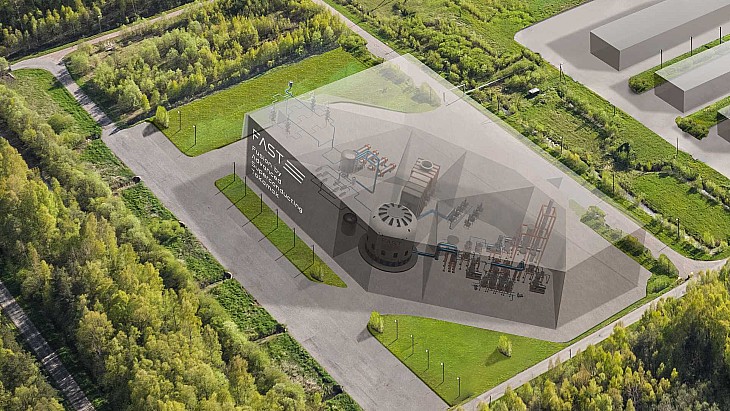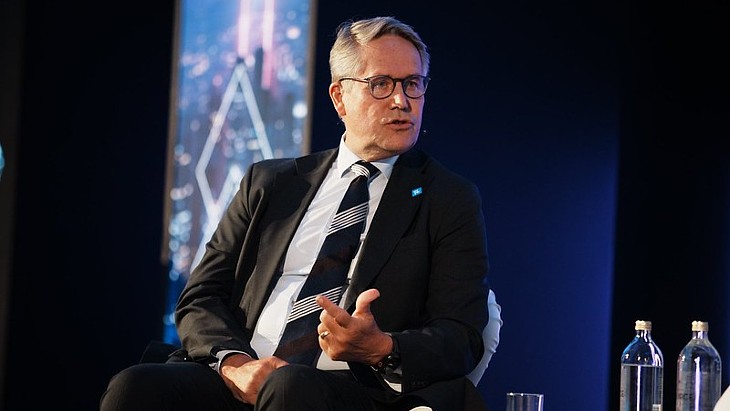Start-up operations of the new Leningrad unit began on 8 December last year, when the first fuel assemblies were loaded into the reactor core. The reactor was brought to the minimum controllable power level on 6 February and connected to the grid on 9 March.
The unit entered "experimental industrial operation" in late March, during which workers gradually raised the power output of the reactor to 40%, 50%, 75%, 90% and 100% of capacity. A series of tests was carried out at each power level.
Rosenergoatom - the nuclear power plant operating subsidiary of Russian state nuclear corporation Rosatom - announced today the completion of the final commissioning test, which involved operating the VVER-1200 reactor at nominal power for 15 days. By the end of the pilot operation, Leningrad-II unit 1 had produced more than 2.2 terawatt-hours of electricity.
"The successful completion of the commissioning tests confirmed the technical readiness for commercial operation of the unit 1 reactor," said Vladimir Pereguda, director of the Leningrad plant. "The results of the final comprehensive test showed stable operation of all the main and auxiliary equipment, the reactor safety systems and its full readiness for power generation in accordance with the project." He added, "We accomplished this task two months ahead of schedule and consider the milestone a great achievement for the team."
The readiness of the unit to enter commercial operation must now be confirmed by the Russian regulator Rostechnadzor. The final decision on the preparedness of the reactor for commercial operation will be made by Rosenergoatom's acceptance commission.
The existing Leningrad plant site has four operating RBMK-1000 units, while Leningrad-II will have four VVER-1200 units.
Leningrad II-1 is scheduled to enter commercial operation before the end of this year, becoming the second VVER-1200 reactor to start up, following the launch in 2016 of Novovoronezh unit 6.

.jpg)



_82983.jpg)
_34792.jpg)
_16403_79272.jpg)


_76087_55556.jpg)



